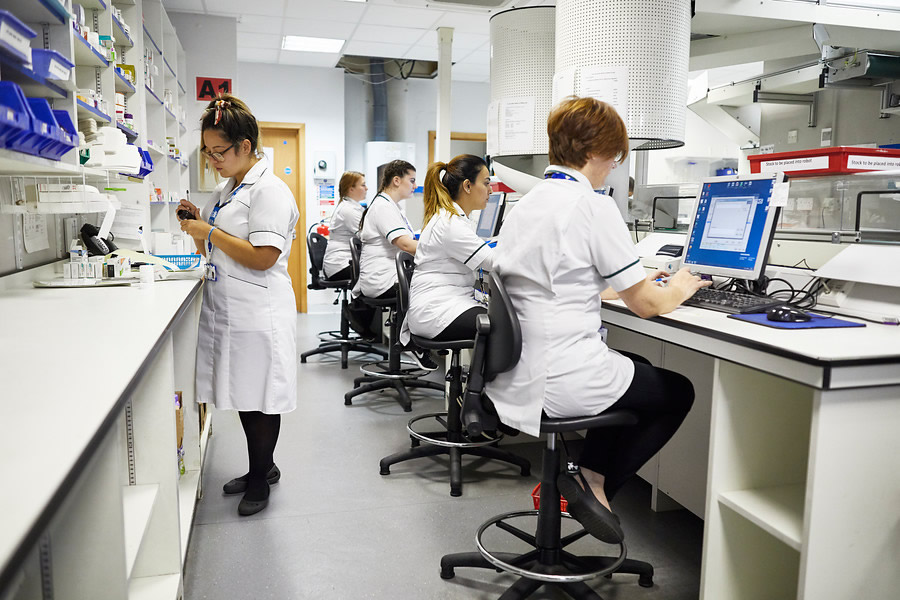At The Christie we deliver the best possible research into cancer treatment and care.
Medical research
There are several types of medical research.
- Basic research, bench research or bench science is looking at things like the body’s systems, cells and molecules often in a laboratory.
- Translational research aims to speed-up turning discoveries into new diagnostic tools and treatments.
- Epidemiological research is looking at the incidence, and causes and effects, of diseases.
- Clinical research is evaluation of treatments, technology or methods involving people.
- Experimental research is basic science or discovery science involving people.
Clinical research studies
A clinical research study is clinical research that is carried out in accordance with a research ethics committee’s approval for an agreed amount of time.
There are 2 main types of clinical research studies.
- Interventional clinical research studies (clinical trials) evaluate a treatment, technology or method involving administering and observing with volunteer participants.
- Observational clinical research studies evaluate a treatment, technology or method that involves non-interventional activities such as questionnaires, data analysis or tissue donation. This may or may not involve people.
There are several different designs of clinical research study.
- Case-control studies compare two groups of people and look for differences.
- Cohort studies monitor a group of people and track changes over time.
- Case reports and case series are detailed studies into individual medical histories.
To set up and run a clinical research study, the following organisations and people must be in place.
- Funder is the organisation that pays for the study to take place. This can be a UK or international government body, charity or industry organisation. Funds are often made available as grants for specific types of research. Some research studies can have more than one funder. Sponsor – the organisation that leads the study and is legally responsible for it. This can be a UK or international government body, charity or industry organisation. The sponsor can also be the funder.#
- Host is the organisation(s) where the study physically takes place.
- Participants are the people who volunteer to take part in the study.
- Study delivery teams are the group of professionals who run the study.
Clinical research study delivery teams
The teams that set up and run clinical research studies at The Christie are permanent and specialise in particular types or areas of cancer treatment. The teams can be ready to go when a new clinical research study is set up.
A clinical research study delivery team typically includes the following people.
- Chief investigator is the person who leads, designs and reports on the overall study for the sponsor. This is always a senior clinician and/or academic.
- Principal investigator is the person who leads research activity at each of the sites hosting the study.
- Clinicians are the clinical oncologists who oversee radiotherapy, medical oncologists who manage chemotherapy, consultant haematologists who are responsible for stem cell transplants and clinical research fellows and surgeons.
- Nurses are the oncology research nurses, clinical/advanced nurse practitioners and clinical nurse specialists.
- Support staff are the study coordinators, project managers, secretarial team and administrators.
- Support services are staff from pharmacy, radiology and pathology services.
- Research partnership facilitator is the person who liaises with the sponsor if it is an industry organisation.
Clinical trials
A clinical trial is a clinical research study that involves people in assessing a treatment and its effects. Clinical trials evaluate drugs, devices, procedures and other interventions and measure things like how well an intervention works and if it causes side effects. Trials can last from a few weeks to several years.
There are several different designs of clinical trials.
- Randomised controlled trials are when equal groups of randomly selected people receive different treatments or none.
- Open label not randomised trials are when everyone knows what treatment trial participants are going to receive before it starts.
- Blind trials are when the people taking part don’t know what type of treatment they’re receiving.
- Double blind trials are when neither the people taking part in the trial, nor those running it know what treatment participants are receiving.
- Placebo controlled trials are when one group are receiving a treatment and another group isn’t but participants don’t know which group they’re in.

